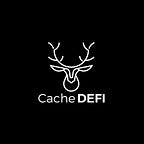Decentralized Finance: How it will fast-track growth of developing economies.
INTRODUCTION
According to Investopedia, “Decentralized finance, or DeFi, is a system by which financial products become available on a public decentralized blockchain network. That makes them open to anyone to use, rather than going through middlemen like banks or brokerages. Unlike a bank or brokerage account, a government-issued ID, Social Security number, or proof of address are not necessary to use DeFi. More specifically, DeFi refers to a system by which software written on blockchains makes it possible for buyers, sellers, lenders, and borrowers to interact peer to peer or with a strictly software-based middleman rather than a company or institution facilitating a transaction.”
DEFI AND ITS RELIANCE ON ETHEREUM
A significant portion of DeFi applications currently rely on Ethereum’s blockchain. Ethereum’s high transaction fees and relatively lower speed of transactions have somewhat dampened the speed of innovation and adoption of DeFi applications. However, new solutions are being developed to mitigate this, such as alternative blockchains, and it is widely accepted that DeFi will disrupt traditional finance as we know it.
For this future to be realized, it is important that efforts and investments keep being made to ensure barriers are continually being pulled down. Responsibility for this falls on private organizations and developers operating in the DeFi industry and also public sector players.
WHAT THE FUTURE HOLDS FOR DEFI
One of the most significant innovations in DeFi, which will play a key role in the disruption of traditional finance, is Smart Contracts. Smart contracts simplify multiparty transactions by eliminating middlemen, who would normally oversee or guarantee transactions, and instead it uses code to temporarily lock tokens until the agreed upon conditions are met.
The non-custodial smart contract is the technology that will enable DeFi applications in financial sub-sectors such as loans, investments, capital deployment, long and short-term savings, employment contracts, tenancy agreements, etc.
Currently, DeFi is mostly being put to use by speculators trying to facilitate or leverage their bets. As more development is carried out and more applications are created, we will gradually see an integration between DeFi applications, and the “real” economy.
WHAT IMPACT WILL DEFI HAVE ON DEVELOPING ECONOMIES?
DeFi is poised to offer many financial benefits to developing nations and their citizens. As DeFi technology and applications are being introduced to developing economies, the inherent flaws in centralized finance are constantly being highlighted for all to see and eschew.
These are some of the many opportunities DeFi will provide to developing nations:
Wealth Creation through Trading: Cryptocurrencies, while volatile, offer a very quick means of creating an immense amount of wealth, if done the right way. A majority of the world’s poor currently reside in developing nations, and the main reason poverty is widespread in developing nations is a lack of access to opportunities. With widespread availability of low-cost smartphones, many people in developing nations now have access to trading platforms, such as Binance, which present them an opportunity to build wealth.
Hedge against Currency Devaluation: There is a high level of volatility of government-backed currencies in developing nations. In Zimbabwe, for example, after the economy crashed the central bank began to print fiat currency in large quantities which resulted in a severe depreciation of the Zimbabwean Dollar. The situation got so terrible that Zimbabweans started to reject the government-backed Zimbabwean Dollar and the government had to turn to using the Chinese Yuan or US Dollar to meet its local obligations. For citizens in developing countries, cryptocurrencies, and most especially stablecoins, offer an opportunity to keep their funds from depreciating.
Transparency as a Solution to Corruption: Corruption is rife in many developing countries, and it is so because it is supported by centralized and opaque institutions which are not held accountable if they are favored by the “right people in the right positions”. The DeFi blockchain, once it is widely adopted, will contribute significantly to bringing an end to the status quo in many developing countries. Since transactions can be seen by all members of the decentralized network, hiding illegal funds or laundering them will become a very arduous task.
Value Creation through Startup Funding: One of the reasons why developing nations remain poor is due to a lack of access to capital to fund the ideas of innovative entrepreneurs. Banks and lenders in many developing countries do not only demand cutthroat interest rates, they sometimes also demand assets up to 5x the value of the loan as collateral. DeFi will change this by enabling innovative entrepreneurs in developing countries access capital from all over the world. A good example of a platform facilitating this access to capital is CACHE DEFI.
CACHE DEFI is a decentralized finance crowdfunding platform which will enable a community of stakeholders (such as customers, mentors, partners, fans, or even employees) support any startup by buying up shares with any amount of money. The Cache DEFI Project will decentralize venture capital with blockchain crowdfunding and offer opportunities for CACH token holders. Through the CACHE DEFI platform, entrepreneurs from any developing country can pitch their idea to potential investors from around the world and gain funding for their businesses.
CONCLUSION
The financial solutions that DEFI offers will go a long way in improving the standard of living for people in developing countries, create financial inclusion, and fast-track the growth of their economies by making financial services available to the entrepreneurs whose ideas will create a better world for one and all.
If you want to learn more:
Our white paper: White Paper
Our tokenomics page: CACH Tokenomics
Our Team: Cache DEFI Project
Our Site: CacheDEFI
or info@cachedefi.com
